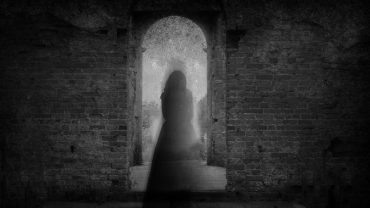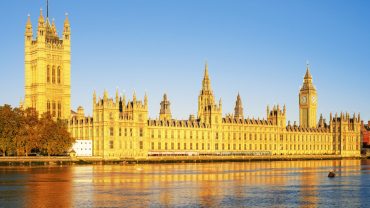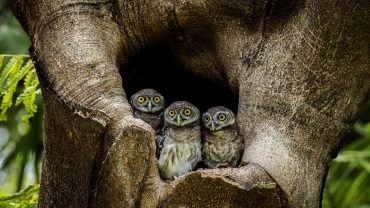Throughout history, the words of authors have transcended the page to leave indelible marks on individuals and society at large. From Shakespeare to J.K. Rowling, these literary giants not only entertained and inspired but also provoked thought, challenged societal norms, and instigated change.
Their stories, characters, and philosophies have shaped cultures, influenced political landscapes, and fostered empathy and understanding across diverse populations. But what does it take for an author to become a household name? For that matter, what makes an author famous? Get ready, because we’re finding out.
Making the List

Leo Tolstoy, 1828 - 1910, author of War and Peace (Credit: ilbusca via Getty Images)
Compiling a list of history’s most famous authors is a surprisingly complex task, with a variety of conflicting factors at play, including:
Long vs. Short Term Influence
Comparing authors from different eras is inherently challenging. For example, although there are centuries between Homer and Virginia Woolf, both have demonstrated enduring influence. This comparison becomes even more complex for contemporary authors, such as J.K. Rowling or Haruki Murakami, because their impact has not yet had the same amount of time to be fully recognised and understood.
Linguistic Boundaries
Language can be a significant barrier in determining an author’s international reach, especially when it comes to languages using different forms of alphabets. This can mean an extremely popular author in one part of the world is relatively unknown in others. It can also present a research challenge.
Genres
Comparing a poet like Rumi with a novelist like Tolstoy involves subjective judgments about the relative impact of different forms of writing.
Evolution of Mediums
The way literature is consumed has changed over time, from oral traditions and handwritten manuscripts to printed books and digital formats. This evolution affects an author’s reach and influence.
So Many Contenders

Charles Dickens in his study (Credit: Keith Lance via Getty Images)
It’s fair to say there’s a wide array of famous and impactful authors who’ve left their mark on the world of literature. Charles Dickens, known for his vivid characters and social commentary, left an enduring legacy with works like “A Tale of Two Cities” and “Great Expectations”. Karl Marx, through texts like “The Communist Manifesto”, profoundly influenced political theory and philosophy.
Contemporary authors such as Stephen King and J.K. Rowling have captivated millions with their imaginative storytelling in genres like horror and fantasy. Haruki Murakami’s surreal narratives and Zadie Smith’s explorations of race and identity reflect the complexities of modern life. Maya Angelou’s powerful poetry and autobiographies, including “I Know Why the Caged Bird Sings”, have inspired many with their themes of resilience and liberation. Jiang Rong’s “Wolf Totem” offers a unique perspective on Chinese history and culture, while Danielle Steel’s prolific career in romance writing continues to enchant readers.
These authors, among others, have shaped and enriched the literary landscape across different eras and genres. But how can you judge any top list of authors when you have so many outstanding candidates?
Can Fame be Measured?

The real-life Hogwarts Express, from JK Rowling's Harry Potter series (Credit: Filippo Maria Bianchi via Getty Images)
Quantifying the fame of an author is a complex, some would say impossible, task. Nevertheless, numerous methods have been suggested, including:
- Book Sales: In theory, total sales figures of an author’s works could provide an empirical indicator of their popularity. However, the most comprehensive of these only began in 2001.
- Translations and Adaptations: The number of languages an author’s work has been translated into can indicate their global reach. The number of adaptations of an author’s works into movies, TV shows, or other media can highlight their cultural impact.
- Social Media Presence: Followers, mentions, and engagement on platforms like Instagram can reflect an author’s contemporary influence and reach.
- Search Engine Trends: The frequency and volume of searches for an author’s name and works on platforms like Google can provide insights into their public interest and relevance.
- Literary Awards and Honours: The number and prestige of awards won reflect critical acclaim and recognition.
- Academic Citations: The frequency with which an author’s works are cited in academic papers and scholarly articles can indicate their influence in literary and academic circles.
- Library Holdings: The number of libraries worldwide that hold copies of an author’s works.
- Social Impact: The extent to which an author’s works have influenced social movements, political change, or public discourse can be measured through qualitative analysis and historical impact studies.
- Media Coverage: The amount and nature of coverage in newspapers, magazines, literary journals, and online publications can reflect an author’s prominence and public interest.
- Fan Base and Communities: The size and activity of fan clubs, forums, and online communities dedicated to an author’s works can indicate their influence and engagement with readers.
- Online Presence: It’s been suggested that examining the number of results per search term reflects both an author’s digital footprint and current interest levels.
So, how well do these metrics reflect authors’ fame? With so many hidden variables, it’s difficult to tell. However, one can compare the results of different methods.
Comparing Metrics

Jane Austen's house in Chawton, Hampshire (Credit: AmandaLewis via Getty Images)
As an example, the following is a list of authors along with the number of Google search results their name returns, and showing that comparison to their rank if using total translations (figures correct at time of writing):
Notes:
- The choice of search term can have a major impact on the results. For instance, inputting “William Shakespeare” returns 168 million results, while just “Shakespeare” garners 326 million.
- Authors with common names might have inflated search results due to namesakes. So, a search for “Dan Brown” yields 3.45 billion results. Adding “author” to the term reduces this to 230 million.
What becomes clear even when comparing just these two metrics, is that the results differ wildly. The top author by translation, Agatha Christie, doesn’t even make the top ten by search results. Similarly, other metrics remain hugely out of step with one another. Ultimately then, the idea of establishing history’s most famous author becomes one of conjecture and choice – the results reflect the metrics used, and the selection of methodology will massively impact the results.
No ‘Write’ Answer

A statue of Plato outside the Hellenic Academy (Credit: Jon Hicks via Getty Images)
Compiling a list of history’s most famous authors is a complex and almost fruitless endeavour, fraught with challenges and nuances. The myriad factors involved, ranging from book sales and cultural impact to digital presence and academic study, each offer a unique lens through which fame can be assessed. However, the lack of comprehensive methods to measure fame, particularly across different eras and genres, makes compiling a single definitive list of the world’s most famous authors a seemingly impossible endeavour.












